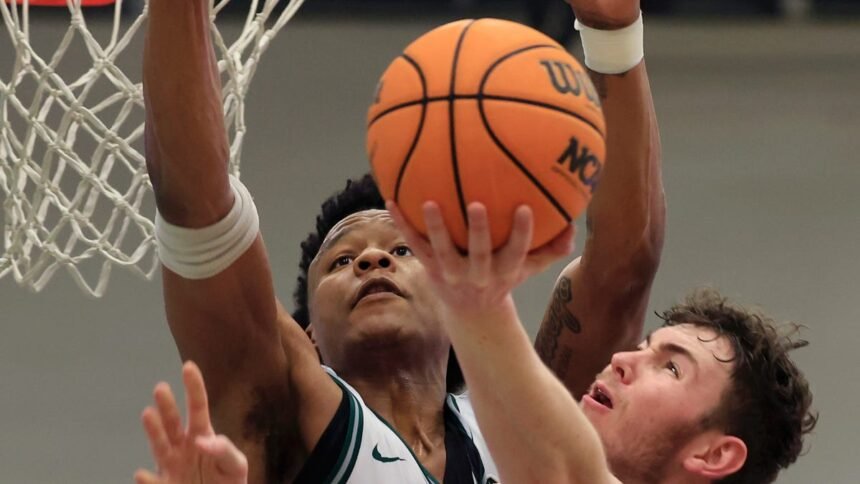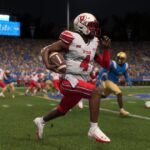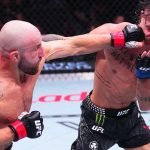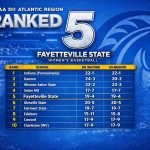How historic NCAA pay settlement will affect college sports
A federal judge approved the terms of a $2.8 billion settlement that will see schools be permitted to pay college athletes through licensing deals.
unbranded – Sport
- Jacksonville University and the University of North Florida have opted into the House v. NCAA settlement, allowing for direct payment of athletes.
- Not all universities in the ASUN Conference have opted in.
- Both JU and UNF athletic directors view the settlement as a positive change for student-athletes.
Jacksonville University and the University of North Florida are among the institutions nationwide opting into the House v. NCAA settlement, the deal that opened the door for direct payment of athletes starting on July 1 and began a new financial world for college sports.
Both Jacksonville-based institutions confirmed that they are now officially part of college athletics’ settlement era, which has effects that will ripple well beyond the high-revenue sports of football and basketball.
The NCAA has yet to publish a full list of institutions opting in, although schools in the ACC, Big Ten, Big 12 and SEC had automatically opted into the settlement — including Florida, Florida State, Miami and UCF. Those opting out include the service academies, the Ivy League and a number of other schools in mid-major conferences around the country.
The settlement does not apply to Edward Waters University or Flagler College, which compete within NCAA Division II, not Division I.
In the ASUN Conference, which includes JU and UNF, not all universities agree. Florida Gulf Coast University in Fort Myers is among the schools opting into the settlement, with FGCU athletic director Colin Hargis describing the task facing universities as “essentially writing a new blueprint.”
But elsewhere in the ASUN, the Arkansas Democrat-Gazette reported July 3 that Central Arkansas, which is set to move in 2026-27 to the United Athletic Conference, is among the universities opting out of the settlement. And at North Alabama, athletic director Josh Looney told Huntsville, Ala.-based television station WZDX in February that his program intends to delay opting into the settlement until 2026-27.
The settlement, approved June 6 by Judge Claudia Wilken of the United States District Court for the Northern District of California, permits schools to make direct payments to athletes, a total capped for 2025-26 at $20.5 million but rising during the subsequent decade. It’s expected that most universities outside the power conferences will spend considerably less than the maximum.
While the settlement removes caps on scholarship numbers, it also imposes firm roster limits across numerous sports, and particularly for sports like track and field and swimming, programs at many universities are facing the prospect of roster cuts following the settlement.
The effects are far-reaching from a deal already beginning to reshape college sports, and the universities on the First Coast are no exception.
JU’s Ricker-Gilbert: Deal ‘monumental’
Jacksonville University athletic director Alex Ricker-Gilbert described the settlement’s effect as “monumental.”
“The House v. NCAA settlement is monumental, forever changing college athletics,” Ricker-Gilbert said in a statement to the Times-Union on July 7. “Jacksonville University has opted in, as the agreement allows universities to expand support for student-athletes in new and meaningful ways. We see this as an opportunity to continue enhancing the student-athlete experience now and into the future.”
Still to be determined is exactly how the post-settlement landscape will affect competitive balance for schools like JU and UNF, both hit hard in the transfer portal across many sports in recent years.
While JU no longer competes in football, a program discontinued in December 2019, the Dolphins produced one of the all-time postseason runs in men’s basketball when an Artis Gilmore-squad charged to the NCAA Tournament final in 1970. Only the UCLA dynasty of John Wooden denied JU the national championship.
JU men’s basketball last reached the NCAA Tournament in 1986, but did qualify for March’s College Basketball Invitational. The school has also qualified for the NCAA field in sports including baseball, women’s lacrosse and men’s soccer during the past five years.
UNF’s Morrow hails ‘incredible opportunities’
UNF athletic director Nick Morrow likewise described the settlement as a “pivotal opportunity” in the Ospreys’ decision to opt in.
“The new era of NCAA Division I athletics presents incredible opportunities for student-athletes,” Morrow said in a statement. “The University of North Florida has announced its decision to opt in to the new NCAA model, which enables us to provide greater resources to our student-athletes and compete at the highest level.
“This step supports our vision of setting the standard for a holistic student-athlete experience — producing champions in both athletics and academics — while elevating the University of North Florida brand.”
UNF, which does not compete in football, has only once qualified for the NCAA Tournament in men’s basketball, in 2015. The Ospreys did, however, make the NCAA cut during 2024-25 in sports including men’s soccer and softball, and UNF’s strength across athletics as a whole earned the school the top finish among ASUN programs in the Learfield Directors’ Cup in June. UNF’s 114th place in Division I was the school’s highest finish to date and ranked sixth among programs in the state, behind Florida (seventh), Florida State (28th), Miami (55th), South Florida (78th) and UCF (83rd).
UNF’s athletic department said that it would release further details on its plans under the settlement in the coming weeks.











